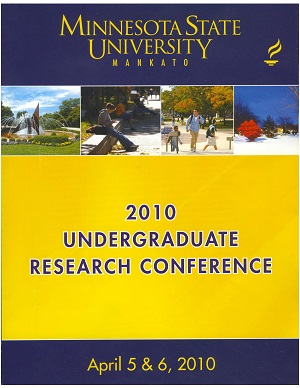Surveying Case Managers about Current Practices Regarding Foster Youth
Location
CSU 243/4/5
Start Date
5-4-2010 1:00 PM
End Date
5-4-2010 3:00 PM
Student's Major
Psychology
Student's College
Social and Behavioral Sciences
Mentor's Name
Carlos Panahon
Mentor's Department
Psychology
Mentor's College
Social and Behavioral Sciences
Second Mentor's Name
Laura Strunk
Second Mentor's Department
Social Work
Second Mentor's College
Social and Behavioral Sciences
Description
This research was conducted to look at case workers and their current practices regarding foster youth. Foster youth are included in a vulnerable population that has limited access to school programs that would allow them to have a more well-rounded education. Therefore, it is important to examine the services case managers provide foster youth to overcome these obstacles and allow them to have a better education. A case manager works in various communities assisting adolescent wards of the state by providing advocacy, assessment, and a broad range of case management services to youth. These services include but are not limited to, developing service plans, transporting youth to various appointments, providing supervised visits to clients, attending court sessions, completing necessary reports, and providing referrals for services needed. The objectives of this research were to determine how frequently case workers are implementing after school social support programs for foster and post foster youth and how much they feel these programs are necessary. In addition, the necessity of doing more of an exhaustive post foster care check-up of foster youth by the case managers to ensure better transition from foster care was examined. The surveys were sent to case managers in Southern Minnesota that work with Foster Youth between that ages of 14 and 21.
Descriptive and correlational analyses were conducted on all returned surveys. Results identified relative strengths and weaknesses of current services provided to foster youth. Recommendations to improve services for foster youth were provided.
Surveying Case Managers about Current Practices Regarding Foster Youth
CSU 243/4/5
This research was conducted to look at case workers and their current practices regarding foster youth. Foster youth are included in a vulnerable population that has limited access to school programs that would allow them to have a more well-rounded education. Therefore, it is important to examine the services case managers provide foster youth to overcome these obstacles and allow them to have a better education. A case manager works in various communities assisting adolescent wards of the state by providing advocacy, assessment, and a broad range of case management services to youth. These services include but are not limited to, developing service plans, transporting youth to various appointments, providing supervised visits to clients, attending court sessions, completing necessary reports, and providing referrals for services needed. The objectives of this research were to determine how frequently case workers are implementing after school social support programs for foster and post foster youth and how much they feel these programs are necessary. In addition, the necessity of doing more of an exhaustive post foster care check-up of foster youth by the case managers to ensure better transition from foster care was examined. The surveys were sent to case managers in Southern Minnesota that work with Foster Youth between that ages of 14 and 21.
Descriptive and correlational analyses were conducted on all returned surveys. Results identified relative strengths and weaknesses of current services provided to foster youth. Recommendations to improve services for foster youth were provided.
Recommended Citation
Kraayenbrink, Jacy and Michael Hamilton. "Surveying Case Managers about Current Practices Regarding Foster Youth." Undergraduate Research Symposium, Mankato, MN, April 5, 2010.
https://cornerstone.lib.mnsu.edu/urs/2010/poster-session-B/13




